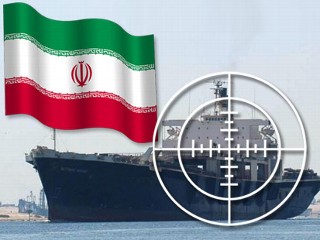MOSCOW (Reuters) - Russia toughened its stance towards Iran on Wednesday, threatening to back further United Nations sanctions over Tehran's nuclear program unless it halted uranium enrichment in the next few days.
The United States, Britain and France are pushing to impose new punitive measures on Iran, which they suspect of seeking to acquire a nuclear weapon.
Russia's U.N. envoy Vitaly Churkin said Moscow could back a sanctions resolution the Western powers have drafted and which they want to discuss in the U.N. Security Council this week.
"If Iran in the next few days does not stop the enrichment activities of its heavy water project then yes, Russia ... has taken upon itself certain commitments... to support the resolution that has been drafted in the past month," Churkin told reporters via a video link from New York.
The Security Council has demanded Iran halt uranium enrichment, the part of its nuclear program that most worries the West because the process can potentially be used to make material for bombs.
Iran has refused to halt the work. It says it is seeking to master nuclear technology so it can make fuel for a planned network of nuclear power plants and save its huge oil and gas reserves for export.
France and Britain have submitted a third sanctions resolution against Iran calling for measures including asset freezes and mandatory travel bans for specific Iranian officials.
It also expands the list of Iranian officials and companies targeted by the sanctions. Earlier rounds of sanctions were imposed in December 2006 and March 2007.
Russia, which has strong ties to Iran's energy industry, has previously been reluctant to impose more U.N. sanctions on Iran.
Though it agreed on the outline of the sanctions resolution last month in Berlin, some Western diplomats had expressed concern Russia might try to weaken the resolution out of pique over the West's recognition of Kosovo.
In Vienna, the chief U.S. envoy to the International Atomic Energy Agency said Iran's dismissal of intelligence indicating it tested technology relevant to nuclear bombs could trigger a resolution by the nuclear watchdog's governors to put further pressure on Iran.
"We haven't made a decision on a resolution but it could be an effective way to convey this message," Gregory Schulte told Reuters in an interview.
Iran has denounced the intelligence, which came mainly from a laptop spirited out of Iran in 2004 and handed to Washington, as baseless and fabricated.
There is a clip from an interesting article on Yahoo! tonight...
Link: http://news.yahoo.com/s/nm/20080227/wl_ ... nuclear_dc







